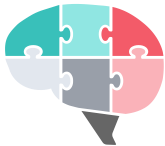Simple Method of Reading a Paper a Day
Hey neurons, if you are anything like me, you love to add new papers and books to your TBR list. You collect these books and papers with the full conviction that at one point in time, very shortly, you will have a peaceful moment and read through all of them. Coming to the end of my PhD, I have learned that this is an illusion. Here, I would like to share some tips and tricks that have helped me read more and stay up-to-date with the literature within my field.
Reading one paper a day
This was the advice I got from a PostDoc in our lab, and it seems so simple: “read one paper a day.” But I think this might be the best advice I’ve ever received. After hearing it, I got into the habit of reading a paper daily and taking notes, either in my notebook or online in a reference manager such as Zotero. In general, when we have a habit we perform every day, it accumulates into a large output by the end of the year. Thus, if you read and take notes on a paper daily, by year’s end you will have notes on 365 papers.
Finding relevant papers and placing them inside the literature.
To find relevant literature and understand how papers relate to the previous work are two of the finer skills that you will develop later in your PhD. In the beginning, you'll most likely struggle to filter through some of the literature and end up reading everything, which can take a long time. However, at a certain point, you'll find you can tell at a glance whether a paper is relevant to you or not. This ability mostly comes with experience, but there are a few techniques that can help you develop this skill. One is to identify the most important researchers in your field, read their papers, and see which work they cite. In this way, you will start to build research networks or "trees" of papers. Two tools that can help you do this are ResearchRabbit and Connected Papers. With these tools, you can see how different papers are connected and which papers are cited the most, or are the core nodes of the network.
Listening to papers
Something I used to do when I had to read a lot of papers at once was to listen to them. There are several paid apps for this, but you can also use Adobe Reader, which is free. With these apps, you can set a reading voice and speed, and have the app narrate the paper for you. One approach I found effective is to listen to the narration and then actively recall what was written by monologuing out loud what I just heard. This ensures you’re not just experiencing the information passively, but actively engaging with it.
📚 Something to read
📚 Book - Empire of AI - I found this book eye-opening, especially how it shows the mismatch between what we think AI is and how it is being created. Highly recommend it to anyone working with or using AI to become more informed about the tools and potentially more cautious in the future.
“Over the years, I’ve found only one metaphor that encapsulates the nature of what these AI power players are: empires.”
― Karen Hao, Empire of AI
👀 Something to watch
👀 Lecture - OHBM series - If you are interested in neuroscience or computational neuroscience, there is a wealth of lectures online from neuroscience conferences. The one I recommend to start with is the OHBM series.
🎧 Something to listen
🎧 Podcast - Hidden Brain - One of my favourite podcasts to listen to, when I want a positive note and learn a little more about psychology and neuroscience.
🧠 NeuroSnips Community
Lastly, I'm creating a membership for anyone who wants to support the channel and mailing list, and access to a specially curated resource bank designed for bachelor's, master's, and PhD students.
- Access to monthly curated templates, goal planners, and reading trackers
- Access to dedicated Notion workspaces for (PhD) students: meta-learning dashboards.
- Future access to the Beta version of The Infinity Lab community upon launch

